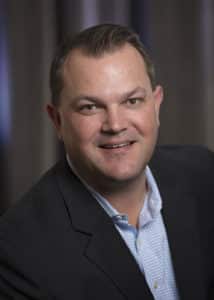Five questions with… Bank of America’s Duane Freeman

Five Questions With is a monthly Q&A segment on AutoFinanceExcellence.org that offers a glimpse of what senior industry executives are thinking about outside the boardroom. Read on to find out.
At Bank of America’s auto division, preserving a personal touch is key to engaging with both consumers and colleagues in a meaningful way, or so Duane Freeman, senior vice president of consumer vehicle lending and national sales executive, has learned during his 22-year tenure in the auto finance industry.
“For example, in our client direct auto product, 55% [of loans] are digitally originated, but only 8% of those transactions are unassisted where the consumer never talks to an associate,” Freeman said. “So, even if you build the utopia of digital retailing, the consumer still wants high touch, and you have to have that in your process flows.”
Auto Finance Excellence asked Freeman five questions to find out what his company goals are, advice that helped him succeed in an ever-changing industry, and a surprising fact that his colleagues would never suspect.
Auto Finance Excellence: What are your company goals in 10 words or less?
Duane Freeman: Our purpose is to help make financial lives better through the power of every connection. That’s not quite 10, but close enough. That’s definitely our gig.
To go a little deeper on that, our goal is to make the client feel like we have their best interest at heart. Which is easy to say as an aspiration, but it’s actually hard to do.
One of the ways we go about doing that is understanding our customers’ life priorities. We sit down with the customer and break it down into seven categories, which are finances, home, health, family, leisure, giving or work.
In auto, that could hit a couple different life priorities. It could potentially hit family — the family who wants a minivan to get folks around. It could also potentially hit leisure for the folks who want a corvette to troll around on the weekends. This has been consistent since [Chief Executive] Brian Moynihan took over.
AFE: What is your favorite piece of leadership advice you’ve ever received?
DF: I think it is to be sincere and genuine with anyone you interact with. I think about the pace of business today — it’s just maddening — but I think people still want to be led. They want — they seek out — meaningful connections with their leaders, family and friends. I believe that being genuine and authentic is critical during those moments that matter.
When you think about [auto], there’s plenty of opportunities for moments that matter. It’s a highly dynamic space, highly regulated, fragmented, competitive and cyclical. And I think that requires strong leadership that provides the opportunity to connect with your associates and your clients. If you’re genuine, you can build trust and confidence with your associates and clients to the point where they will follow you even under the most difficult circumstances.
AFE: What do you think is the most underrated trend in lending practices?
DF: You hear and read a lot about digital retailing or high technology or the “Amazon effect” — and I think these are important trends — but I think the underrated trend is that relationships and high touch still matter in lending.
Even in a perfect digital flow, there’s still going to be multiple opportunities when a consumer wants to engage a real person to gain an understanding of your process, your price or your product. That’s why we believe you have to have both a high tech and a high touch.
At Bank of America, we’ve got best-in-class digital capabilities, but we also spend a lot of time making sure that we’ve got best-in-class high-touch experience.
AFE: What person has had the most significant influence on your career?
DF: It’s hard to isolate the one person, so I’m going to give you two. What’s interesting is that auto finance is a huge industry but a small community.
The first one would be Bruce Jackson, who runs Chase’s auto group now but used to work at Bank of America. Bruce elevated me to a leadership role from an individual contributor role back in 2006, and I had the opportunity to watch Bruce lead the team. What I admired about him was how effortlessly he made connections with clients and associates, and he taught me to always make yourself available to your people, associates, and clients even when you’re buried with your workload.
Real problem-solving starts with listening to those who are closest to day-to-day activities. I’d say I spend about 70% of my time listening and understanding issues.
The second person — and I won’t give you a name — taught me how creating an exclusive work environment rather than an inclusive one breeds rapid dysfunction and distress throughout a team. I learned from him what not to do, because I witnessed firsthand the unintended consequences of his actions.
I believe as a leader you have an awesome responsibility to be above reproach. Your actions can have a negative waterfall effect on the organization. The team needs a leader they can trust, one who creates an inclusive environment where everyone can thrive based on their performance and contributions.
AFE: What’s something all of your colleagues would be surprised to learn about you?
DF: This is a fun one. I’m born and raised in New Jersey, and I went to a very small private school in central New Jersey — there were 21 kids in my graduating class. Many of my friends went to Ivy League schools like Harvard and Yale and MIT. I chose to go to the University of Utah because I’ve always believed you need balance in your life.
If you work hard, you need to play hard, and I’ve always loved to ski, so I went to Utah to be a ski bum and get a degree. I would ski 50-plus days a year and loved every minute of it.
I always tell folks it’s important to have goals and be successful, but don’t forget that the journey matters, too. Don’t be laser focused on goals that you forget to enjoy the ride.















